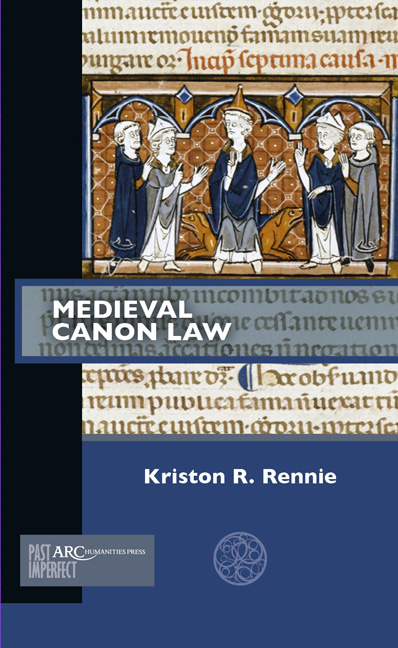Summary
Medieval canon law is an invention—an evolutionary story of human industry, ingenuity, and change. This book explains part of its creation, adopting a slightly different interpretive lens. It tackles the subject's formulation through a social history framework, with a view to making sense of a rich and complex legal system and culture, and an equally rich scholarly tradition. But it focuses primarily on a developing period in European history (ca. 400–ca. 1140), before the emergence of professional lawyers, law schools, courtrooms, and universities. It looks more closely at the incipient (early medieval) centuries, when the legal structures, rationales, norms, and practices were just beginning to take shape. As this book explains, the law was a dynamic and fluid process that transformed with time, experience, and necessity. It was a living and breathing organism, created, pronounced, and legitimated across a growing Christian world.
For these simple reasons, canon law is an unavoidable theme for medieval historians. It intersects with every aspect of medieval life and society. At one point or another, every medievalist works on the law. Every medievalist is confronted—and necessarily engages—with legal sources of various description. And every medievalist employs medieval canon law in the formulation of individual arguments, theses, chapters, articles, and books. Thinking of it as part of the greater, cohesive whole is key to assessing its purpose and appreciating its wider historical relevance. As an analytical tool, canon law frames the sociopolitical and religious world that we investigate. As material remnants of a distant western European past, it defines the transformative society in which it was created and applied. Embodying myriad social, political, and cultural qualities and characteristics, moreover, the law is a subject too important to be left to canonists alone.
Why, then, does it remain an esoteric field of historical research? The subject as a whole carries a mixed reputation, despite its obvious connection with—and influence on—the development of premodern European culture, systems, and structures. To be sure, it is a specialized subfield of medieval theological, religious, and intellectual history and thought. As a consequence, it conjures the image of inaccessible jargon, textual criticism, and technical studies on legal minutiae and manuscripts.
- Type
- Chapter
- Information
- Medieval Canon Law , pp. 1 - 4Publisher: Amsterdam University PressPrint publication year: 2018



